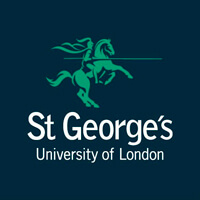fees waived
Biomedical Science, MSci (Hons)
St George's, University of London, United Kingdom
Ranking in UK
Human Biological Science
Biomedical Science
Costs
food & rent S$24.8K / year
Entry requirements
Scholarships
Limited quantity
Information
Code
Intakes
Website (External)
Programmes
Information
Duration
2029
Biomedical scientists advance research and medicine, addressing major diseases like COVID-19, cancer, diabetes, and heart conditions. St George’s Biomedical Science MSci is a four-year program designed for those pursuing research careers, integrating master’s-level study with the core curriculum of their BSc, plus additional modules for enhanced research skills. In years one to three, students build foundational knowledge with options for specialization in year three, culminating in an extended research project in the final year to develop advanced practical expertise.The program emphasizes lab techniques in state-of-the-art facilities, strong industry connections for employment opportunities, and an optional professional training year in sectors like industry or the NHS to boost employability. At St George’s, University of London—established in 1752 as a specialist health institution—students benefit from a clinical setting shared with a major teaching hospital and a legacy of innovation in infectious diseases, from Edward Jenner’s smallpox vaccine to modern research on tuberculosis and HIV.
You can find extensive information about the modules you can expect to study on this course on our website: https://www.sgul.ac.uk/study/courses/biomedical-science#study
A local representative of St George's, University of London in Singapore is available online to assist you with enquiries about this course.

